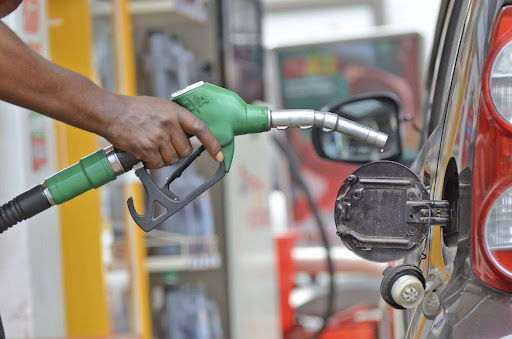
Fuel prices have remained unchanged in this month’s price review by the Energy and Petroleum Regulatory Authority (Epra).
In the period under review, the maximum allowed petroleum pump prices for Super Petrol, Diesel and Kerosene is Sh174.73; Sh164.86 and Sh148.99 respectively.
The prices will remain in force from May 15, 2025 to June 14, 2025.
Epra attributed the drop to a decrease in average landed cost of imported fuel products.
The average landed cost of imported super petrol decreased by 2.95 per cent from US$606.06 per cubic metre in March 2025 to US$588.16 per cubic metre in April 2025.
Diesel decreased by 6.62 per cent from US$636.75 per cubic metre to US$594.60 per cubic metre while kerosene decreased by 4.52 per cent from US$628.22 per cubic metre to US$599.84 per cubic metre over the same period.
“In the period under review, the maximum allowed petroleum pump prices for Super Petrol, Diesel and Kerosene remain unchanged. The prices are inclusive of the 16 per cent VAT in line with the provisions of the Finance Act 2023, the Tax Laws (Amendment) Act 2024 and the revised rates for excise duty adjusted for inflation,” the authority said.
It’s the third time this year fuel prices have remained unchanged after a rise during the January review.
In the January-February cycle, the price for super petrol rose by by Sh0.29 per litre, diesel by Sh2 per liter, and kerosene by Sh3 per litre.
A litre of petrol was capped at Sh173.43 in Mombasa, Sh176.58 in Nairobi, Sh175.80 (Nakuru), Sh176.62 (Eldoret and Kisumu).
Diesel was retailed at Sh168.82 (Mombasa), Sh167.06 (Nairobi), Sh166.63 (Nakuru), Sh167.45 (Eldoret), and Sh167.44 (Kisumu).
A litre of Kerosene went for Sh151.82 (Kisumu and Eldoret), Sh151.01 (Nakuru), Sh151.39 (Nairobi), and Sh148.15 (Mombasa).
The prices remained unchanged during the February-March and March April reviews.
In the April-May review, Epra lowered the prices to the current prices citing reduced global oil prices and favourable exchange rates.
In a statement on Wednesday, Epra Director General Daniel Kiptoo said the purpose of the Petroleum Pricing Regulations is to cap the retail prices of petroleum products, which are already in the country, so that importation and other prudently incurred costs are recovered while ensuring reasonable prices to consumers.
“Epra wishes to assure the public of its continued commitment to the observance of fair competition and protection of the interests of both consumers and investors in the energy and petroleum sectors,” he said.
